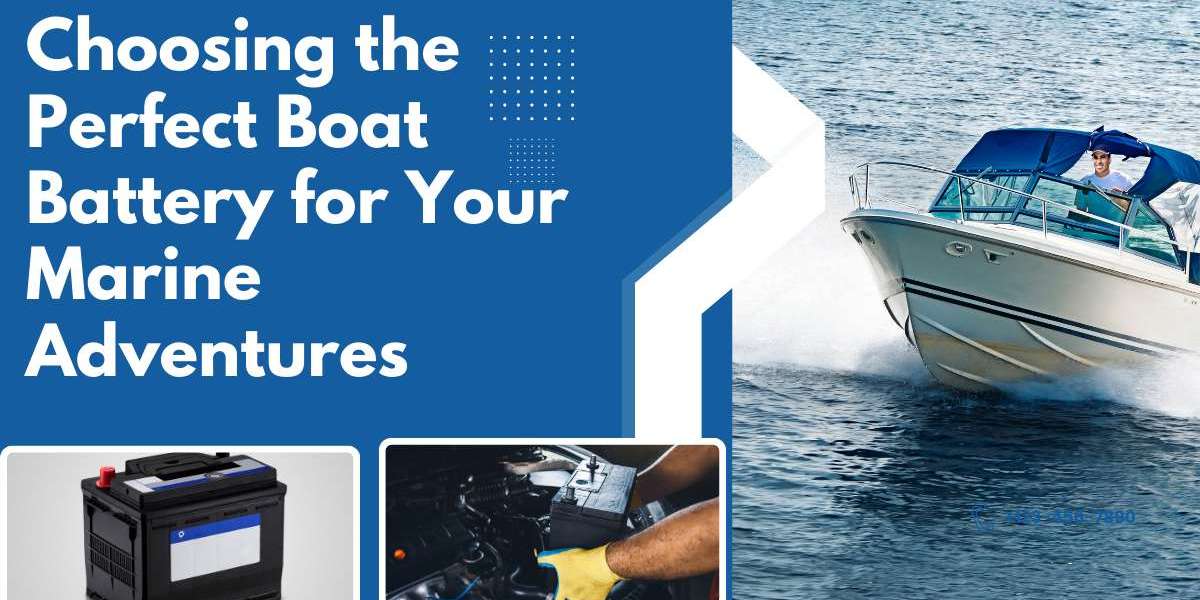When it comes to ensuring your boat operates smoothly, the boat battery plays a crucial role. It powers essential components such as lights, navigation equipment, and even the engine. Understanding the importance of selecting the right boat battery can enhance your boating experience and keep your adventures on the water enjoyable and hassle-free.
Understanding the Importance of a Good Boat Battery
A reliable boat battery is vital for various functions. Here are some key points highlighting its significance:
- Starting the Engine: The boat battery provides the necessary power to start the engine. A weak or dead battery can leave you stranded.
- Powering Electronics: Modern boats come equipped with various electronic devices, including GPS systems, fish finders, and radios. These devices require a robust battery to function properly.
- Supporting Comfort: Comfort features, such as lights and air conditioning, also rely on a dependable boat battery.
Choosing the right boat battery not only ensures that your boat runs smoothly but also enhances safety and enjoyment while you're out on the water.
Types of Boat Batteries
There are several types of boat batteries, each designed for different purposes. Understanding these types can help you make an informed choice:
Lead-Acid Batteries: The most common type used in boats. They are available in two forms:
- Starting Batteries: Designed for short bursts of high power to start the engine.
- Deep-Cycle Batteries: Ideal for powering devices over extended periods. They can be discharged and recharged repeatedly.
Lithium-Ion Batteries: Gaining popularity due to their lightweight and longer lifespan. They can handle deep discharges better than lead-acid batteries.
Gel and AGM Batteries: These are sealed batteries that don’t require maintenance. They are less likely to spill, making them safe for use in boats.
Choosing the Right Type for Your Needs
- Lead-Acid: If you need a budget-friendly option and your power demands are moderate, lead-acid batteries are a solid choice.
- Lithium-Ion: If you want lightweight batteries with a longer life, consider lithium-ion batteries, even if they come at a higher initial cost.
- Gel and AGM: Opt for these if safety and low maintenance are your top priorities.
Factors to Consider When Buying a Boat Battery
When purchasing a boat battery, consider the following factors to ensure you make the right choice:
1. Capacity
The capacity of a boat battery is measured in amp-hours (Ah). This rating indicates how much energy the battery can store and how long it can power devices. For example, a 100Ah battery can theoretically provide 5 amps for 20 hours.
2. Size and Weight
Ensure that the battery fits the designated space on your boat. Additionally, consider the weight, as heavy batteries can affect your boat's performance.
3. Maintenance Requirements
- Lead-Acid Batteries: Require regular maintenance, including checking electrolyte levels.
- AGM and Gel Batteries: Generally maintenance-free, making them easier to manage.
4. Cold Cranking Amps (CCA)
CCA measures a battery's ability to start an engine in cold temperatures. A higher CCA rating means the battery will perform better in cold conditions.
5. Lifespan
Look for batteries with a longer lifespan to get the best value. Lithium-ion batteries typically last longer than lead-acid batteries.
Battery Maintenance Tips
Proper maintenance can extend the life of your boat battery. Here are some tips to keep in mind:
- Check Connections: Regularly inspect battery terminals and cables for corrosion or looseness.
- Clean the Battery: Keep the battery clean to prevent buildup that can affect performance.
- Charge Regularly: If the boat is not used frequently, ensure the battery is charged regularly to prevent deep discharges.
- Store Properly: When not in use, store the battery in a cool, dry place to maintain its condition.
Common Mistakes to Avoid
When dealing with boat batteries, it's easy to make mistakes. Here are some common pitfalls to avoid:
- Overcharging: This can damage the battery and shorten its lifespan. Use a smart charger that prevents overcharging.
- Ignoring Maintenance: Neglecting routine checks can lead to unexpected failures on the water.
- Choosing the Wrong Type: Ensure you select a battery that meets your boat's specific needs.
Comparing Battery Brands
Here’s a quick comparison of some popular boat battery brands:
| Brand | Type | Lifespan | Price Range | Best For |
|---|---|---|---|---|
| Optima | Lead-Acid | 3-5 years | $$ | Starting and deep-cycle |
| Battle Born | Lithium-Ion | 10+ years | $$$$ | Lightweight applications |
| Odyssey | AGM | 4-6 years | $$$ | High-performance needs |
Expert Insights
According to marine battery expert John Smith, "Choosing the right boat battery can significantly impact your boating experience. Always consider your power needs and the type of boating you do."
Frequently Asked Questions
What is the best type of boat battery for my needs?
The best type depends on how you use your boat. For occasional use, a lead-acid battery may suffice. For frequent outings with many electronics, consider a lithium-ion battery.
How can I tell if my boat battery is failing?
Common signs include difficulty starting the engine, dimming lights, and a battery that won't hold a charge. Regular testing can help catch these issues early.
Can I use a car battery in my boat?
While it’s possible, it’s not advisable. Car batteries are designed for short bursts of power, unlike boat batteries, which are designed for deep cycling.
Conclusion
Choosing the right boat battery is essential for a smooth and enjoyable experience on the water. By understanding the different types available, considering important factors, and avoiding common mistakes, you can ensure your boat is ready for any adventure. Always remember that a good battery not only powers your boat but also keeps you safe and comfortable while enjoying your time on the water.








